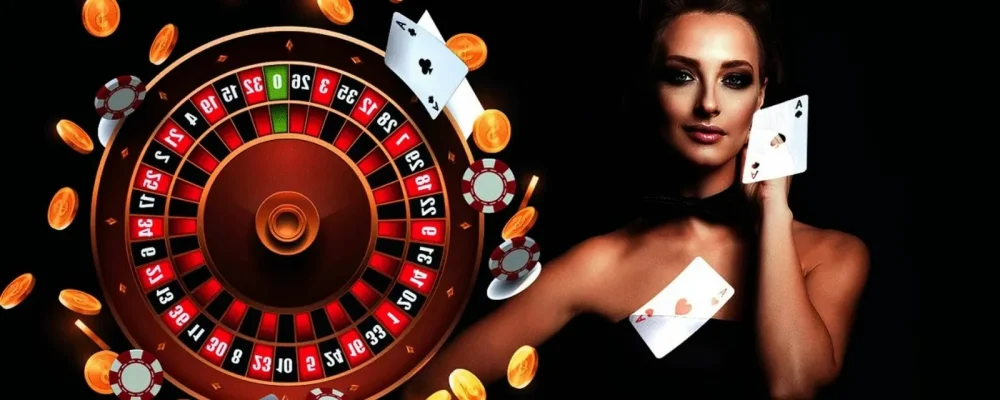The deep penetration of artificial intelligence technologies into the gambling industry has led to a massive paradigm shift: if luck used to play a key role, now there is increasing discussion on whether neural networks can beat the casino.
At the intersection of chance and algorithms emerges a new environment where players strive to use machine learning, while operators seek to maintain control.

The Algorithmic Basis of Gambling: Controlled Randomness
Modern online casinos operate based on random number generators. Modules are embedded in the software of each slot machine, roulette, or card game. Their task is to provide equiprobable outcomes. However, upon closer inspection, it becomes evident that the randomness is controlled. Each value is the result of a complex mathematical model operating within specified limits.
Those studying whether neural networks can beat the casino point out that the generator’s behavior is not entirely chaotic. Since the algorithms are still based on code, certain patterns can be identified in them—especially when accessing the history and a large volume of data.
Can Neural Networks Beat the Casino: The Role of AI in the Gaming Process
Artificial intelligence in gambling manifests not only as a potential “player.” Operators use neural networks for adapting interfaces, calculating odds, and detecting fraud. However, on the other side are enthusiasts who question—can neural networks beat the casino if AI is applied as an analytical tool?
In particular, game theory and multilayered analytics have proven their effectiveness in poker, where not only the cards matter but also the opponents’ behavior.
Where Algorithms Defeat Randomness: Most Vulnerable Areas
Some gaming directions allow AI to achieve relative success. Below are disciplines where neural networks can analyze the proceedings and partially adjust the strategy:
- poker—analysis of emotions, betting patterns, and real-time decision-making;
- live blackjack—reading dealer’s repetitive actions, tracking game cycles;
- sports betting—predicting outcomes based on statistics and probability models.
In each of these areas, there is no absolute randomness. The game evolves within a certain logic, making the question of whether neural networks can beat the casino particularly relevant. With sufficient data volume and training resources, an algorithm can find short-term advantages.
Where AI Is Powerless: Impenetrable Gaming Modules
There is also the opposite spectrum—game solutions where the algorithm yields no results. This refers to formats entirely controlled by random number generators, where there is no strategy, and each session’s outcome is isolated from the previous one. These disciplines include:
- slots—each spin is generated independently, making prediction impossible;
roulette with RNG—number sequences lack logical connection; - bingo and keno—random ball generation without historical dynamics.
Even if a player uses AI to analyze symbol frequencies, the slot algorithm resets with each spin. Therefore, regardless of whether neural networks can beat the casino, the result remains beyond control.
Can AI Be Used in Online Casinos Without Violating Rules?
Legal and ethical boundaries form a separate layer of discussion. There are cases where AI helps analyze one’s own bets without interfering in the gameplay. In such cases, the question of whether AI can be used in online casinos receives a positive answer.
Nevertheless, the prohibition of AI in gambling is becoming a norm for most operators. The use of third-party software, including algorithms in Python or TensorFlow, may be seen as an attempt to breach security—especially if sessions demonstrate abnormally high winnings or unrealistically stable strategies.
How AI Helps Win in Casinos: Acceptable Methods
With proper neural network configuration, they can be used as an analytical tool without violating regulations. Below are areas where AI application in gambling is permissible and does not lead to sanctions from platforms:
- analysis of bet efficiency over a period;
- calculating the optimal bet size considering the balance;
- determining loss limits;
- real-time odds comparison;
- detecting emotional deviations in the game.
Such integration helps enhance session efficiency, minimize financial risks, and control behavioral reactions. However, even in this format, the platform can closely monitor account activity.
Where Algorithms Begin: How AI Interprets Gaming Patterns
Machine learning algorithms make forecasts based on predictable patterns. Once repetitive behavior by the system is identified, a neural network forms a hypothesis. If confirmed in subsequent sessions, a strategy emerges. From the AI perspective, the boundary between randomness and logic is crossed when a cycle appears—even if not perfect.
Difficulties arise where logic is blurred, as in slots with pseudo-random modules. However, even in such conditions, analysis of temporal deviations affecting coefficient sizes, win frequencies, and bonus activation probabilities is possible. In this context, the question of whether neural networks can beat the casino becomes a matter of depth of analysis and access to hidden parameters.
Why AI Gambling Is Interesting for the Community
A community of analysts, mathematicians, and enthusiasts is developing the field of intelligent gambling. Strategies are discussed, models are tested, gaming situations are simulated. Streaming, custom bots, and automated probability analysis are applied. This approach shapes a new culture—where entertainment transitions into exploration.
Many participants are not concerned with whether neural networks can beat the casino for profit. For them, the process itself is important—the opportunity to delve into the game structure, identify algorithm boundaries, and conduct experiments. This transforms gambling into a testing ground for technological advancements.

Conclusion
Modern online casinos balance between randomness and predictable algorithms. Neural networks open up a new horizon of possibilities, allowing for analysis, prediction, and strategy building.
However, the answer to whether neural networks can beat the casino remains ambiguous. Yes, in specific disciplines, there may be a reduction in variance and an increase in efficiency. But achieving absolute control or guaranteed victory is impossible. The boundary between randomness and algorithm is still safeguarded technologically, legally, and architecturally.
 en
en  de
de  ar
ar  es
es  hi
hi  nl
nl  fr
fr  it
it  pt
pt  el
el 









